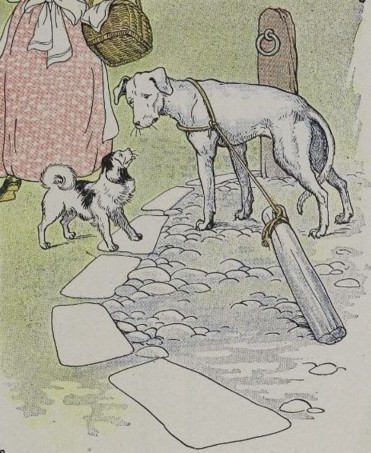| 1. early 早く、早い | |
| 2. project プロジェクト、課題 | |
| 3. contact 連絡する |

I called you earlier but you didn’t answer the phone. What were you doing when I called?
|
|
|
Sorry, I was doing the dishes when you called. What were you doing then?
|
|

I was studying our group project and I had some questions about it.
|
|
|
I see. Did you also contact Brian about it?
|
|

Yes, but his mother said he was at his piano lesson when I called.
|
|

|
Let’s try to call him again now.
|

Sure!
|

I called you earlier but you didn’t answer the phone. What were you doing when I called?
|
|
Sorry, I was doing the dishes when you called. What _____________?
|

I was studying our group project and I had some questions about it.
|
|
I see. Did you also contact Brian about it?
|

Yes, but his mother said he _______________.
|
|
Let’s try to call him again now.
|

Sure!
|
| 1. | A: What were you doing when the guests came? B: I ______________ when the guests came. |
| 2. | A: What was he eating when you ate lunch together? B: He ______________ when we ate lunch together. |
| 3. | A: ________ when ________? B: Anna was doing her homework when I called. |
| 4. | A: What was he doing in the park when you saw him? B: He _________ running when I saw him. |
| 5. | A: What were Peter and his friends doing when Sarah finished baking? B: Peter and his friends ____________ playing video games when Sarah finished baking. |
| 6. | A: What were ________________ when you saw them at the mall? B: I was shopping when I saw them at the mall. |
| Grammar 文法 |
Pronunciation 発音 | Vocabulary 単語 |
Comprehension 理解 |
|
|---|---|---|---|---|
 GOOD GOOD |
文法の誤りはほとんどなく、完全な文章で話すことができる | ほとんどの単語をはっきりと正しく発音することができる | 習った表現を適切に使うことができる | 文章を理解し、質問に正しく答えることができる |
 FAIR |
文法の誤りはあるが、完全な文章で話すことができる | 発音の練習が必要な言葉がいくつかある | たまにミスはあるが、習った表現を適切に使うことができる | 文章を完全に理解するのは難しく、質問に正しく答えられないときもある |
 POOR |
文章で話すのは難しく、単語だけで話すことができる | 発音の練習が必要である | 習った単語と表現を少しだけ使うことができる | 文章を理解するのは難しく、質問に答えるのは難しい |






